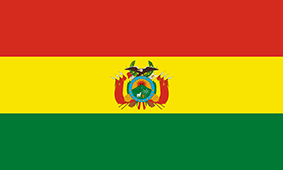
Bolivia sinks into power vacuum after Morales quits

Spain's Repsol, the country's largest private-sector gas producer, told Argus that its operations have not been affected. Other oil companies in Bolivia, including Brazil's state-controlled Petrobras, Russia's Gazprom, France's Total and Shell, could not be immediately reached for comment.
Bolivia exports pipeline gas to neighboring Brazil and Argentina, and has been seeking to establish other regional gas export routes as its traditional markets shrink.
Morales' departure from the presidential palace was swiftly followed by the resignations of vice president Alvaro Garcia Linares, senate president Adriana Salvatierra and chamber of deputies president Victor Borda, wiping out the main constitutional chain of succession. Resignations from Morales' Movement Toward Socialism party (MAS) began snowballing early today, while the police and the military effectively abandoned the executive branch. Among the early departures was hydrocarbons minister Luis Alberto Sanchez.
The congress is expected to meet tomorrow to determine next steps.
Morales, who first took office in 2006 on a resource nationalist platform, declared himself the winner of a fourth term in 20 October elections that the Washington-based Organization of American States (OAS) determined to be fraudulent. Violent clashes between supporters of Morales and his main rival Carlos Mesa broke out in Bolivian cities immediately following a tainted vote tally. While Morales' opponents celebrated on the streets of the eastern city of Santa Cruz and other cities today, his supporters in parts of La Paz continued to clash with security forces, alleging a coup. Looting broke out in some areas.
Morales is a close ally of Venezuelan president Nicolas Maduro, who is no longer recognized as Venezuela's leader by most Western countries.
The turmoil in Bolivia coincides with unrest in several other Latin American countries, including neighboring Chile where president Sebastian Pinera is vowing to resist demands for his resignation.


Trump weighs using $2 billion in CHIPS Act funding for critical minerals

Codelco cuts 2025 copper forecast after El Teniente mine collapse

Electra converts debt, launches $30M raise to jumpstart stalled cobalt refinery

Barrick’s Reko Diq in line for $410M ADB backing

Abcourt readies Sleeping Giant mill to pour first gold since 2014

Nevada army depot to serve as base for first US strategic minerals stockpile

SQM boosts lithium supply plans as prices flick higher

Viridis unveils 200Mt initial reserve for Brazil rare earth project

Tailings could meet much of US critical mineral demand – study

Kyrgyzstan kicks off underground gold mining at Kumtor

Kyrgyzstan kicks off underground gold mining at Kumtor

KoBold Metals granted lithium exploration rights in Congo

Freeport Indonesia to wrap up Gresik plant repairs by early September

Energy Fuels soars on Vulcan Elements partnership

Northern Dynasty sticks to proposal in battle to lift Pebble mine veto

Giustra-backed mining firm teams up with informal miners in Colombia

Critical Metals signs agreement to supply rare earth to US government-funded facility

China extends rare earth controls to imported material

Galan Lithium proceeds with $13M financing for Argentina project

Kyrgyzstan kicks off underground gold mining at Kumtor

Freeport Indonesia to wrap up Gresik plant repairs by early September

Energy Fuels soars on Vulcan Elements partnership

Northern Dynasty sticks to proposal in battle to lift Pebble mine veto

Giustra-backed mining firm teams up with informal miners in Colombia

Critical Metals signs agreement to supply rare earth to US government-funded facility

China extends rare earth controls to imported material

Galan Lithium proceeds with $13M financing for Argentina project

Silver price touches $39 as market weighs rate cut outlook

















